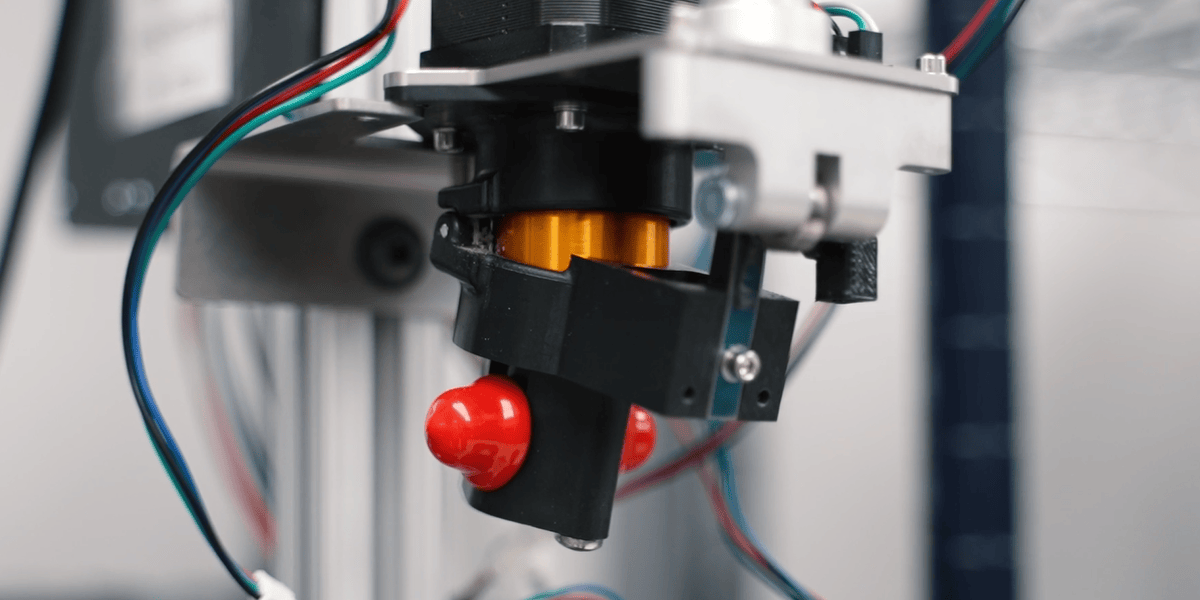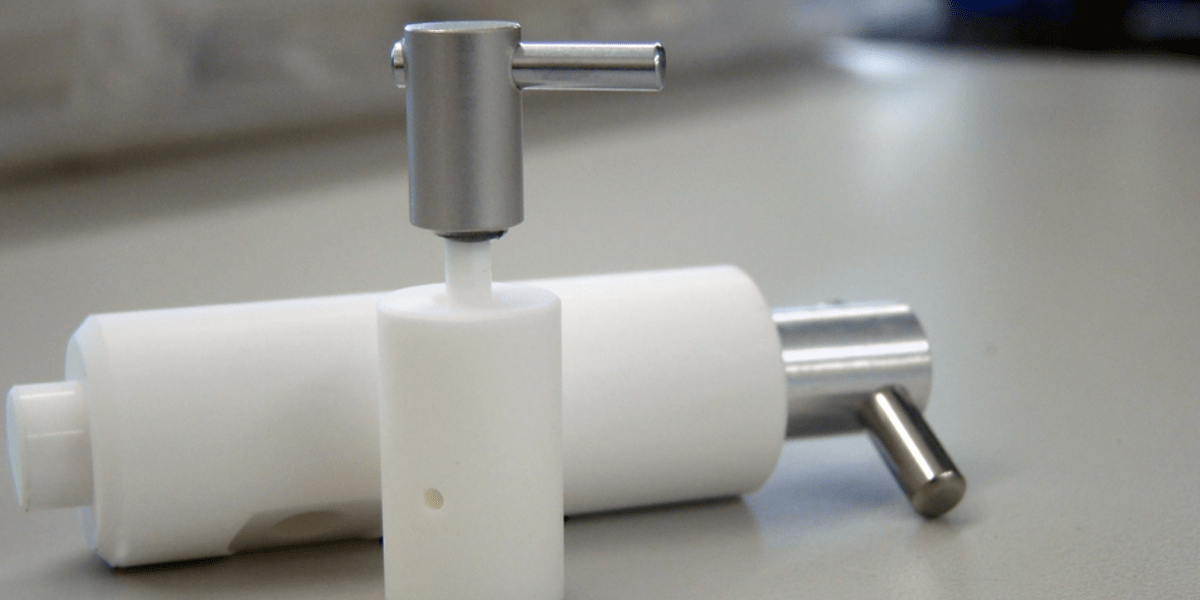The Importance of Microdosing in Genomics
Key Takeaways: In genomics microdosing applications, precision pumps are essential for delivering microliter and nanoliter volumes of reagents used...
2 min read
Stephanie Moreau : Updated on July 22, 2025

In the world of liquid handling and laboratory automation, the ability to dispense small volumes of liquids with utmost precision is of paramount importance. Microliter dispensing, also known as micro dispensing, has emerged as a vital technique in various scientific and industrial applications. In this blog, we will explore the fascinating realm of microliter dispensing, understand its applications, and discuss how Fluid Metering pumps can be used for many of these applications.
Understanding Microliter Dispensing:
Microliter dispensing refers to the accurate and controlled delivery of liquid volumes in the microliter range (typically between 0.1μL and 1000μL). It involves transferring minute amounts of liquid samples or reagents from one vessel to another with high precision and reproducibility. Microliter dispensing plays a critical role in numerous fields, including pharmaceuticals, biotechnology, genomics, diagnostics, and analytical chemistry.
Applications of Microliter Dispensing:
Genomics and Molecular Biology:
Microliter dispensing plays a crucial role in DNA amplification, PCR (polymerase chain reaction), and other molecular biology techniques. It enables the accurate addition of reagents, enzymes, and templates in small reaction volumes. Microliter dispensing also facilitates high-throughput sequencing, genotyping, and gene expression analysis.
Drug Discovery and Assay Development:
In pharmaceutical research, microliter dispensing is essential for screening large compound libraries and performing dose-response assays. It allows for the precise addition of drug candidates, controls, and reagents in microwell plates. Microliter dispensing is also employed in the preparation of assay-ready plates for high-throughput screening campaigns.
Microarray Technology:
Microliter dispensing enables the deposition of minute amounts of biological samples, such as proteins, antibodies, or nucleic acids, onto solid surfaces to create microarrays. Microarrays find applications in genomics, proteomics, and diagnostics, enabling high-throughput analysis of biomolecules.
Diagnostic Assays:
Microliter dispensing is instrumental in the development of diagnostic assays, such as ELISA (enzyme-linked immunosorbent assay) and lateral flow immunoassays. Accurate and precise dispensing of reagents, samples, and controls ensures reliable results and accurate diagnosis.
Advantages and Challenges:
The precise control and accuracy offered by microliter dispensing bring several advantages, including reduced reagent consumption, cost savings, increased throughput, and improved data reliability. However, challenges such as liquid evaporation, meniscus formation, sample loss, and cross-contamination must be carefully addressed to ensure accurate results and experimental reproducibility.
Conclusion:
Microliter dispensing has revolutionized liquid handling in various scientific and industrial domains. Its ability to deliver small volumes of liquids with exceptional precision has enabled advancements in genomics, drug discovery, diagnostics, and more.
Fluid Metering’s ceramic, rotating, and reciprocating piston pumps are ideal for microliter dispensing due to several key advantages. Firstly, the ceramic piston and liner provides excellent chemical compatibility, making it suitable for handling a wide range of fluids, including corrosive or abrasive substances. Secondly, the rotating and reciprocating motion of the piston allows for precise control over the dispensing volume, enabling accurate and repeatable results even at microliter scales. This level of control is crucial in microfluidic applications where small volumes and precise fluid manipulation are essential. Additionally, Fluid Metering pumps offer low dead volume, ensuring minimal waste and sample loss.
The compact size and high efficiency make Fluid Metering pumps well-suited for integration into microfluidic systems, facilitating miniaturization and enabling high-throughput operations. Overall, Fluid Metering pumps provide the necessary attributes of accuracy, reliability, compatibility, and efficiency that make them an excellent choice for microfluidic dispensing.

Key Takeaways: In genomics microdosing applications, precision pumps are essential for delivering microliter and nanoliter volumes of reagents used...

Key Takeaways: In precision microfluidic dispensing systems, trapped air can cause wide variation in dispense volumes and compromise...

Key Takeaways: Fluid Metering’s low-maintenance microfluidic pumps for lab automation deliver long-term precision with minimal wear, thanks to a...